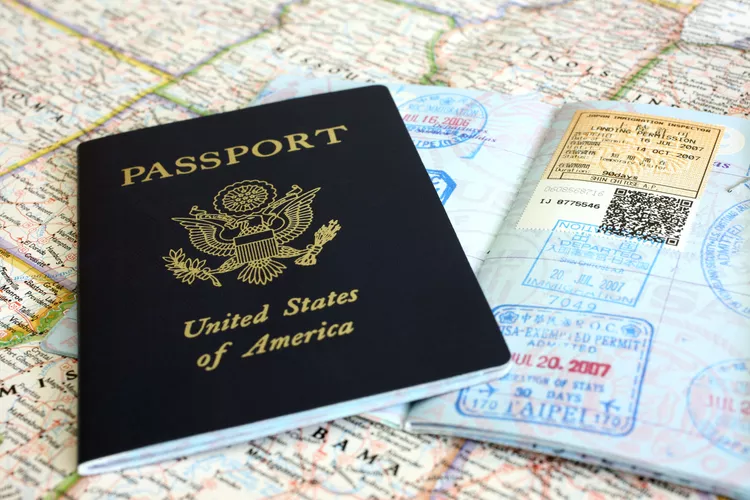Preparation for Your Asia Trip
- Check Visa Requirements
- Contact Your Banks
- Know the Exchange Rate
- Get Travel Insurance
- Check for Events and Festivals
- Reserve Your First Hotel
- Know Duty and Customs Restrictions
- Keep a Loose Itinerary
- Notify the U.S. Department of State
- Arrive Prepared
Planning a trip to Asia can feel overwhelming, especially if it’s your first experience. As your departure date approaches, ensure that you have addressed several critical tasks to prepare for your journey to a new country.
Check Visa Requirements
Understanding the visa laws of your destination is essential before your arrival. Some airlines may deny boarding if you do not have an appropriate travel visa arranged prior to your trip. Visa laws differ by country and can change frequently.
Some Asian nations do not allow travelers to leave the airport without a prearranged visa, which could result in being sent back on the first available flight.
It is crucial not to assume you can secure a visa upon arrival in every country; be aware of the current regulations well in advance of your visit.
Note: Visa requirements can vary based on nationality, and rules can change faster than some resources can keep updated. If in doubt, contact the corresponding embassy for accurate information.
Contact Your Banks

Unexpected charges from foreign transactions could trigger your bank to suspend your card due to suspected fraud. Consequently, if your debit or credit cards are suspended while you are abroad, it can lead to significant inconvenience.
To prevent this hassle, contact your banks before your trip and inform them of the cards you will be using, ensuring they add travel notifications to your account.
Know the Exchange Rate

Familiarize yourself with the current exchange rate and the local currency before arrival, especially if you plan to exchange cash instead of using ATMs. Understanding how to identify counterfeit banknotes and being aware of any lower denomination currencies that may be in circulation can prevent future issues.
When exchanging money, always count your cash before leaving the exchange counter, and retain your receipt. Additionally, some countries request proof that you have not engaged in earning income while within their borders when converting leftover currency back into your home currency.
Get Travel Insurance

Traveling without insurance poses risks, even if you are not engaging in extreme sports or risky activities. In fact, something as mundane as taking a taxi could unexpectedly become hazardous—for instance, Thailand experiences one of the highest traffic fatality rates globally.
Moreover, travel insurance remains relatively affordable and offers protection from theft and accidents while abroad. If you already possess travel insurance coverage, inform the provider of any new countries you will be visiting during your trip. Furthermore, the insurance included in credit card benefits is often insufficient; thus, ensure proper coverage to avoid issues when filing claims later.
Check for Events and Festivals

Arriving during a significant local event you were unaware of can lead to unnecessary stress. Crowded transportation and inflated hotel prices frequently accompany large events or holidays. However, if you plan accordingly, you might choose to modify your travel schedule to experience a festival firsthand.
Missing an exciting festival by just a few days can be disappointing, leaving you with large crowds without the intended enjoyment of the event!
Reserve Your First Hotel

After a lengthy flight, you likely don’t want to wander searching for a hotel in a new location—particularly late at night. While many budget travelers prefer scouting properties before making commitments, after a long journey, you might be more inclined to choose any available room to relax.
To avoid potential inconvenience, consider securing your first night’s accommodations ahead of time. This ensures you have an address readily available for your taxi upon arrival. Regardless of circumstances, resist asking your driver for hotel recommendations.
Photos and manipulated online reviews can elevate a hotel’s appeal beyond reality. Unless you are confident regarding the property’s quality, reserving only the first night or two allows flexibility to explore alternatives if needed. If the accommodation meets your expectations, inquire at the front desk regarding extended stays.
Know Duty and Customs Restrictions

Certain countries uphold strict customs regulations and may impose taxes or seize items considered harmless in other locations. Therefore, understanding these restrictions in advance can help prevent unwanted complications.
Discovering you have “contraband” items during customs clearance at your destination is an avoidable mistake! Customs regulations differ widely; some may catch travelers by surprise. For example, Singapore prohibits electronic cigarettes and pirated DVDs from other countries.
Keep a Loose Itinerary

Overplanning your trip can create unnecessary stress, particularly in regions where transportation delays are commonplace. A fixed itinerary may prove challenging to maintain.
Instead, aim for flexibility in your plans, leaving room to adapt as needed. This approach allows for spontaneous adventures and well-deserved rest days, enhancing the overall travel experience.
Notify the U.S. Department of State

While optional, American travelers can voluntarily inform the U.S. Department of State about their travel plans through the Smart Traveler Enrollment Program, at no cost. In the event of civil unrest or natural disasters impacting your trip, authorities will have knowledge that you may require assistance.
Enrolling in this program allows travelers to receive timely travel alerts specific to each destination, providing opportunities to alter plans if necessary to avoid unsafe situations.
Arrive Prepared

Your travel experience in Asia can be greatly improved with a little advance research prior to departure. Although it is entirely your choice, learning some local phrases, such as greetings, can enhance your interactions.
Moreover, developing a basic understanding of the local cuisine, scams, customs, and cultural etiquette will ease your daily experiences and minimize the potential of culture shock.
In conjunction with gaining knowledge of the country you will visit, familiarize yourself with the concept of “face” and its significance in interactions within Asian cultures for a smoother experience.





